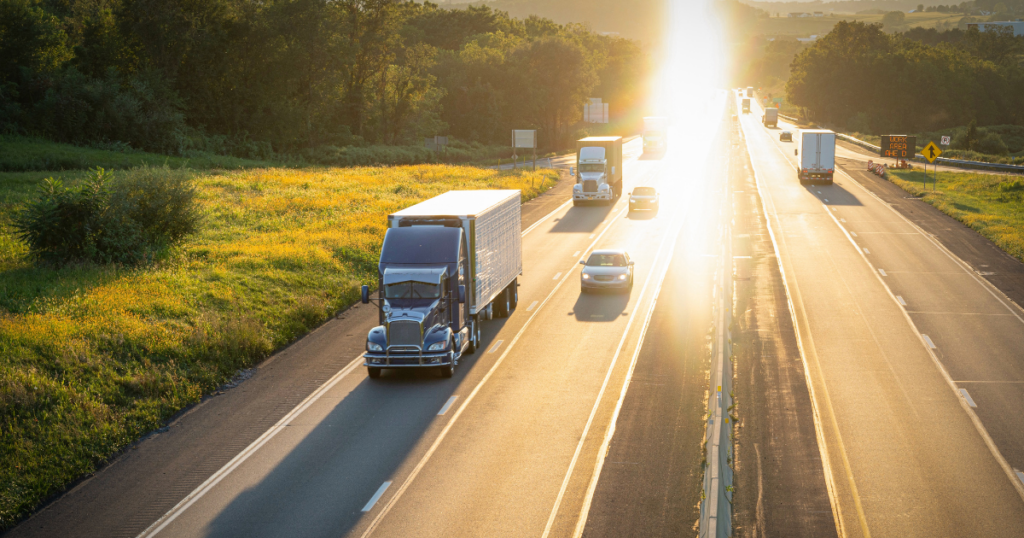At a glance:
- Maine is struggling to fund road improvements and support for communities because it isn’t bringing in enough money to keep up with rising costs — things like road construction have become more expensive, but the money collected hasn’t increased
- The Highway Fund will be $280 million short by 2027 — one big reason is the gas tax hasn’t gone up since 2011, even though costs have
- Past tax cuts and budget cuts have reduced money for important services like roads, schools, and health care
- To help pay for these investments, wealthier people should pay more taxes
Recent revisions to the state’s revenue forecast confirm Maine’s Highway Fund and General fund face structural deficits, albeit not as large as previously expected. Some legislators have tried to claim this is the result of a “spending problem,” but that ignores an important side of the story — the state’s failure to raise enough revenue to keep up with rising costs.
The shortfall in the Highway Fund is emblematic of this issue. Under the state constitution, certain revenues, including from vehicle registration fees, driver’s license fees, as well as fuel taxes, are only allowed to be spent on the construction and maintenance of highways and bridges. This funding forms the basis of the state’s Highway Fund. Last year, approximately 40% of the fund’s revenue came from fuel taxes and another 20% came from registration and license fees.
Through the end of fiscal year 2027, the Highway Fund’s revenue is expected to be $280 million less than needed to fulfill the Maine Department of Transportation’s work plan. That’s a little over a quarter of the fund’s biennial budget. This is not because the Department of Transportation has gone on a spending spree, or because Democrats on the Transportation Committee passed an irresponsible budget (in fact, the fund’s last biennial budget passed with bipartisan support). The problem faced by the Highway Fund is quite simply one of revenues failing to keep pace with expenses.
In 2011, Republicans in the Legislature froze the state’s gas tax, which accounts for the vast majority of highway fund revenue, at a flat 30 cents per gallon. Since then, the cost of road construction and repair has increased substantially. General costs of construction materials are up 65% and wages for construction workers are up 56%. Yet the amount of revenue brought in by the gas tax has been almost flat — the expected revenue in 2027 is $202 million; in 2011 it was $195 million. With growing costs and flat revenues, it’s no wonder a structural gap has opened.
If the 2011 law indexing the gas tax to inflation had simply remained in place, the Highway Fund would have received an additional $588 million between 2011 and 2025 and would receive and extra almost $241 million in the 2026-27 budget cycle, closing 86% of the structural gap.
Decades of inaction by the legislature have only made the problem worse. As the Highway Fund has failed to meet the needs of road construction and repair each year, more and more projects have been neglected, which means continued deterioration and a bigger backlog the next budget cycle. To address the problem, lawmakers have taken to raiding the state’s General Fund to try to bail out the Highway Fund. In the 2026-27 biennium, $230 million of sales tax revenue is due to be moved between the two funds. However, this is clearly not a sustainable solution; not only has it failed to fulfill all the needs of the Highway Fund, but it is depriving the General Fund of revenue at a time when it faces its own structural deficit.
The issues facing Maine’s General Fund are similar to those of the Highway Fund. Governor LePage made austerity and cutbacks the centerpiece of his administration. His tax cuts cost the state hundreds of millions each year in general fund revenues, almost half of which goes to upper-income households in Maine. He cut property tax relief, took away affordable health care and food assistance from tens of thousands of Mainers, underfunded our schools, and short-changed local communities with revenue-sharing.
And just as failing to fix a pothole properly will make it return larger next mud season, so failing to invest in Maine people creates bigger problems in the future. When a school can’t afford to hire enough teachers, the children fall behind in their learning. When someone can’t afford to see the doctor, their untreated cough develops into pneumonia. When we cut state budgets year after year, Mainers’ needs get greater.
There’s bipartisan agreement in the legislature about many of these needs. Republicans and Democrats both proposed budgets last year to fix our roads, keep nursing homes open, and continue funding our schools. The question now is whether, and how, lawmakers plan to pay for these much-needed investments. We can’t afford to return to the pattern of shirking our obligations and leaving Maine people behind. Instead, we need to be asking wealthier Mainers who have generally done well over the past few years to help support the most vulnerable among us by paying more in taxes.




